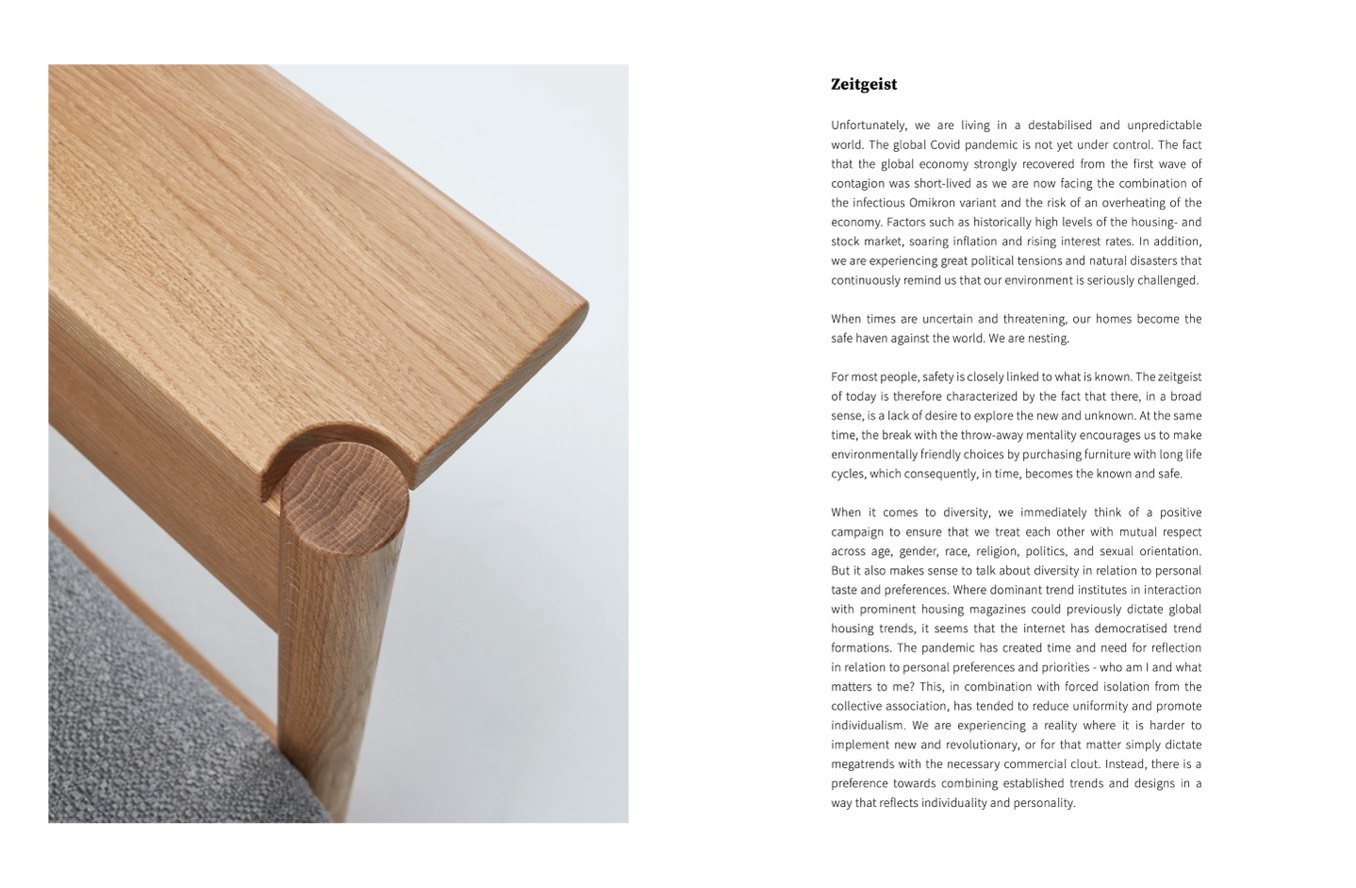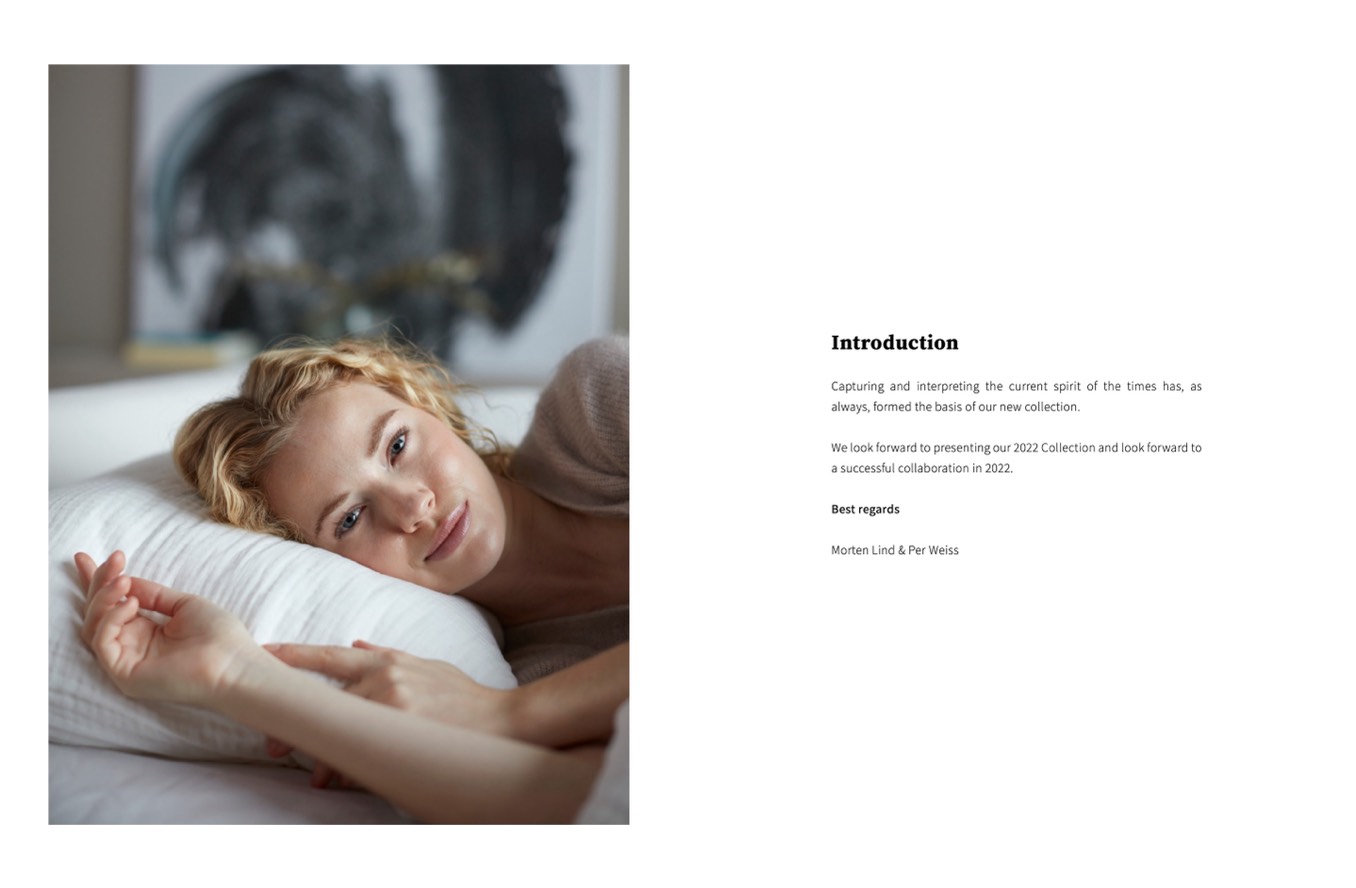
Zeitgeist
Unfortunately, we are living in a destabilised and unpredictable
world. The global Covid pandemic is not yet under control. The fact
that the global economy strongly recovered from the first wave of
contagion was short-lived as we are now facing the combination of
the infectious Omikron variant and the risk of an overheating of the
economy. Factors such as historically high levels of the housing- and
stock market, soaring inflation and rising interest rates. In addition,
we are experiencing great political tensions and natural disasters that
continuously remind us that our environment is seriously challenged.
When times are uncertain and threatening, our homes become the
safe haven against the world. We are nesting.
For most people, safety is closely linked to what is known. The zeitgeist
of today is therefore characterized by the fact that there, in a broad
sense, is a lack of desire to explore the new and unknown. At the same
time, the break with the throw-away mentality encourages us to make
environmentally friendly choices by purchasing furniture with long life
cycles, which consequently, in time, becomes the known and safe.
When it comes to diversity, we immediately think of a positive
campaign to ensure that we treat each other with mutual respect
across age, gender, race, religion, politics, and sexual orientation.
But it also makes sense to talk about diversity in relation to personal
taste and preferences. Where dominant trend institutes in interaction
with prominent housing magazines could previously dictate global
housing trends, it seems that the internet has democratised trend
formations. The pandemic has created time and need for reflection
in relation to personal preferences and priorities - who am I and what
matters to me? This, in combination with forced isolation from the
collective association, has tended to reduce uniformity and promote
individualism. We are experiencing a reality where it is harder to
implement new and revolutionary, or for that matter simply dictate
megatrends with the necessary commercial clout. Instead, there is a
preference towards combining established trends and designs in a
way that reflects individuality and personality.









